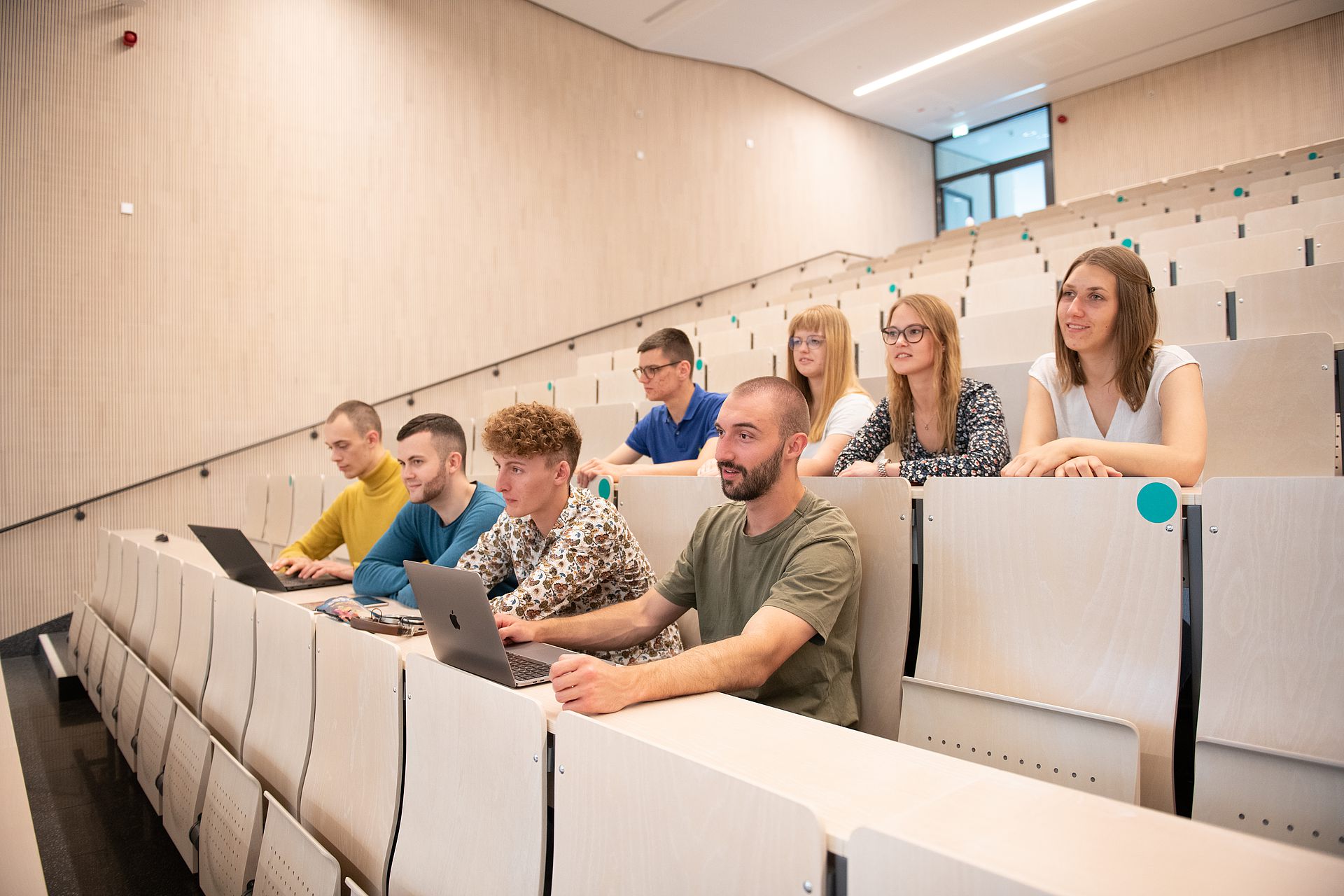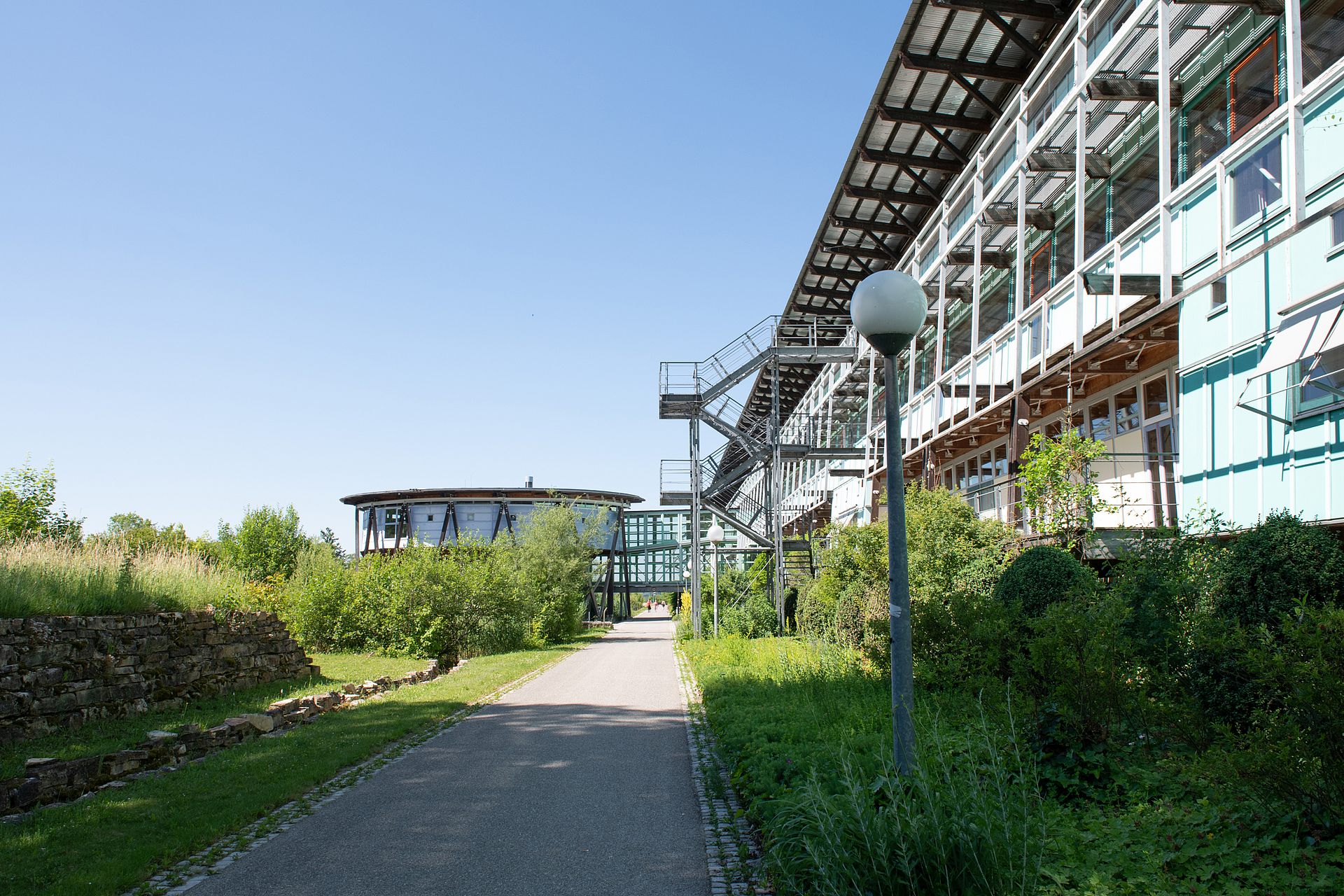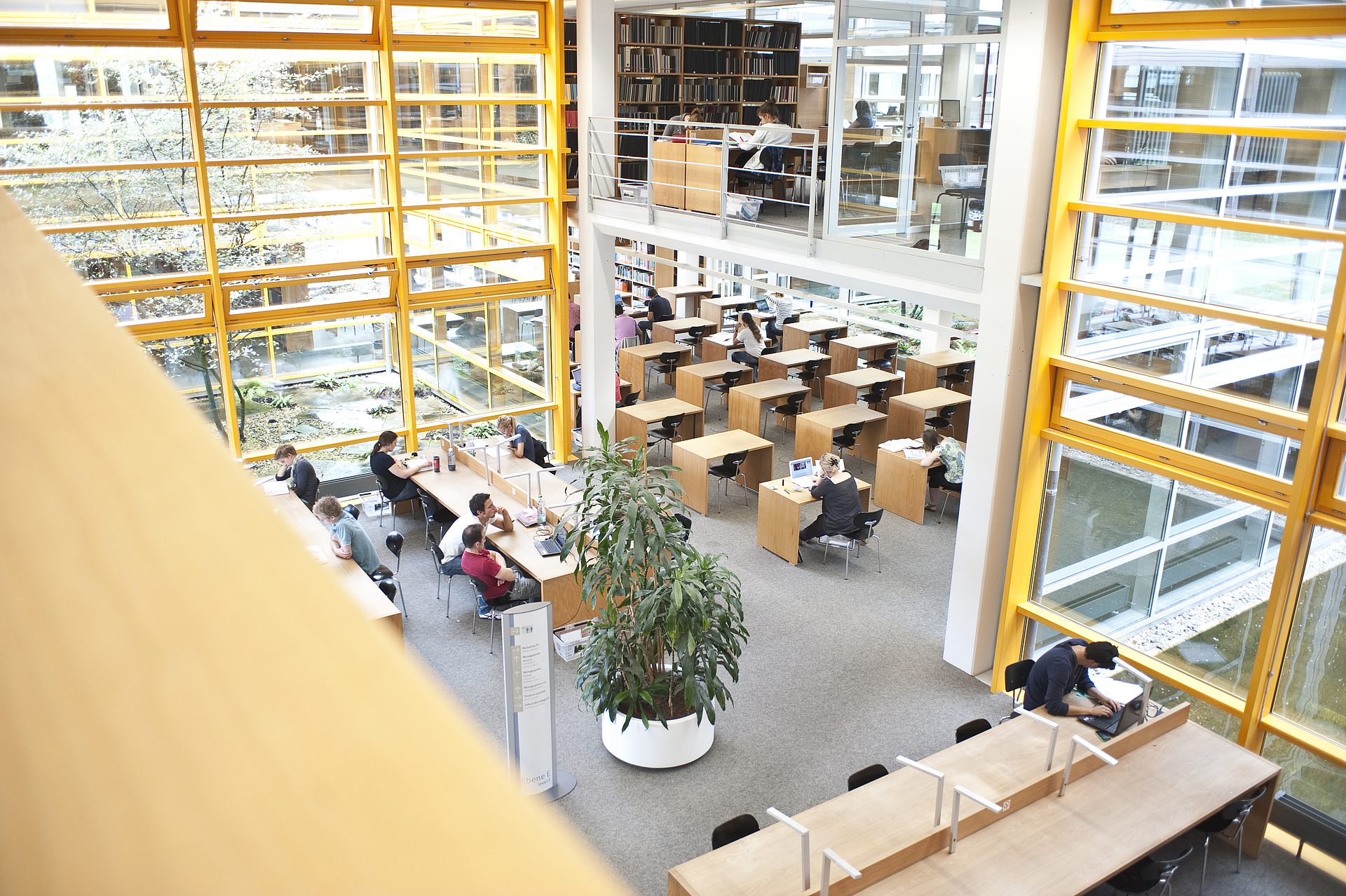Perfectly equipped
Our laboratories and classrooms are state-of-the-art. Because anyone aiming to shape the future shouldn't be learning in an outdated past.

The Master’s programme Psychology at Ulm University teaches in depth:
Because of the new law concerning the education to become a therapist (Psychotherapeutengesetz, PsychThG) the B.Sc. Psychology as well as the M.Sc. Psychology are being modified. Please click here for further information on this topic.
Master of Science (MSc)
60
120
4
Ulm University was recognised as the TOP university in Germany in the StudyCHECK ranking of the most popular universities in 2025.
Here you can see how the Master's degree programme in Psychology is roughly structured over the semesters.
Our laboratories and classrooms are state-of-the-art. Because anyone aiming to shape the future shouldn't be learning in an outdated past.
Psychology at Ulm University is characterised, among other things, by its reinforced research and application orientation. Students are involved in research projects and have the opportunity to work with prestigious scientists. Innovative teaching concepts, courses in small groups and good personal support make the degree programme special. Based on the scientific tradition of Ulm University, students are taught both in-depth specialist knowledge and good methodological skills. The degree programme therefore optimally prepares you for scientific thinking and work, but also for a career in the various fields of application of Psychology.
After graduating, you will be able to understand the causes and consequences of human behaviour, experience and consciousness in theory and practice. You will have mastered advanced methodological procedures and be able to apply them independently in empirical projects. You will have deepened your knowledge in several psychological sub-areas and will be able to work independently in psychological research and professional practice.
In the Master's programme, you will choose at least two of the following four profile subjects. More information on the profile subjects can be found here.
Please note: This master's programme in Psychology does not include any clinical psychology content and does not entitle you to continuing education as a specialist psychotherapist in accordance with the new version of the PsychThG.
The Master's degree programme in Psychology generally comprises four semesters (120 CP). The modules are divided into the following areas:
1. Research Methods and Diagnostics (22 CP): You will acquire in-depth knowledge of empirical research methods and diagnostic procedures, with a focus on advanced methods such as multivariate procedures.
2. Compulsory Elective Area (25+25 CP): Here you choose at least two out of four profile subjects (Applied Cognitive Science; Health, Health Promotion and Prevention; Personnel, Organisation and Work; Psychological Data Science), which are studied in depth.
3. Internship (12 CP): You will complete one or two internships totalling 360 working hours.
4. Complementary Area (6 CP): Here you can take courses from other disciplines such as Biology, Economic Sciences, Computer Science, Mathematics or Engineering.
5. Final Thesis (30 CP): The Master's thesis completes your degree programme.
You can find information about admission on the Admissions Office website. We have also summarised information on the Master's admission test there. If you have any questions about admission, please contact the relevant contact person at the Admissions Office.
The Master's programme in Psychology at Ulm University has been accredited since 2016.
Sophisticated laboratory equipment is used in the majority of research projects at Ulm University.
The two major research focuses at the Institute of Psychology and Education are in the areas of People and Technology and People and Health. In both areas, several departments develop innovative approaches to empirically investigate central questions of Psychology supported by state-of-the-art laboratory equipment.
The focus area "People and Technology" is concerned with the goal of developing interaction concepts that are adapted to human abilities and limitations, for example through display design. As the subject of Psychology is embedded in the Faculty of Engineering, Computer Science and Psychology, researchers benefit from close cooperation within the faculty.
In the area of "People and Health", determinants and consequences of health, aspects of health change and the fundamentals of mental disorders are being researched in several projects. In addition to therapeutic services, scientific studies are also carried out in the Psychotherapeutic Outpatient Clinic.
Click here for the departments of the institute and their research focus.
An excellent way to broaden your horizons is to study at a foreign university. Ulm University students can apply for one or two semesters abroad at numerous universities, both throughout Europe as part of the ERASMUS programme and outside of Europe. If lectures are not required, internships and theses at other universities are also possible. Ulm University has exchange agreements with over 100 universities in 26 countries.
In the master's programme in Psychology, the 3rd semester is particularly suitable for a stay abroad. The ERASMUS subject coordinator for Psychology is the chairwoman of the Psychology subject examination board (international.psychology(at)uni-ulm.de).


Most of the courses in your Psychology degree programme take place at the University West.
(Source: University of Ulm)
Panoramic view of the University West.
(Source: University of Ulm)

Library of Ulm University.
(Source: University of Ulm)
Studying at Ulm University - Info film
Graduation ceremony 2024 on Münsterplatz
Impressions of the city of Ulm and the University
The Master's degree in Psychology represents the full professional qualification. The career prospects for graduates are diverse and open up exciting career paths in various fields.
The fields of activity for Psychology graduates are diverse: